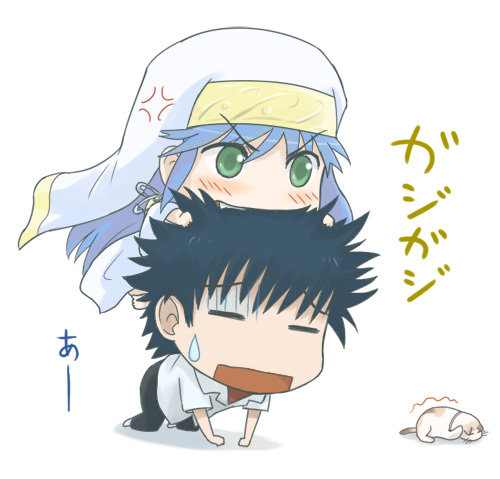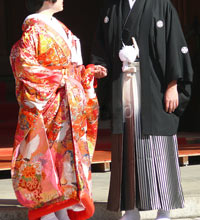I’ve started watching an anime series with the rather unique name of A Certain Magical Index, which is about magic-using espers living in a futuristic place called Academy City, and a girl named Index who has 103,000 magical books stored in her memory. The name of the series is interesting because it illustrates a flexible aspect of written Japanese. Normally, kanji characters have “readings” (official pronunciations), and the general rule is that a character by itself will be read using the kun or Japanese reading, like the word for water (mizu), while two characters forming a compound word will use the on or Chinese reading, as in the words for seawater (kaisui) or cold water (reisui). It’s permissible to “force” readings of kanji characters by assigning them an original reading of your own, which is called ateji. When foreigners want to write their names in kanji, perhaps for one of those cool custom Japanese name stamps, they usually turn to this system: for example someone with the last name of Lockwood might choose characters for “lock” and “tree” for their kanji. Another use might be in novels, to show multiple ideas in a single gestalt. For example, the translator of the Harry Potter novels could choose to write “flying broom sport” in kanji with “Quidditch” in katakana above as the reading, which would communicate both the meaning and the pronunciation at once. The character Light Yagami from Death Note also uses ateji for his name, assigning the English word “Light” to his kanji of “moon.” The “Index” in the title of the anime I’m watching now is written with characters that mean “catalog of forbidden books” (kinsho mokuroku), which adds additional meaning for the reader to pick up.
















